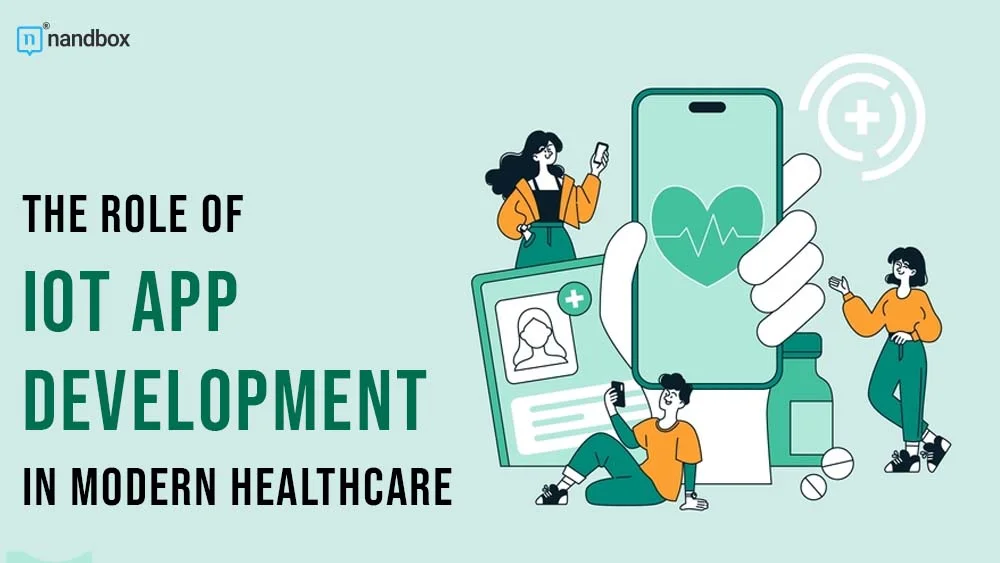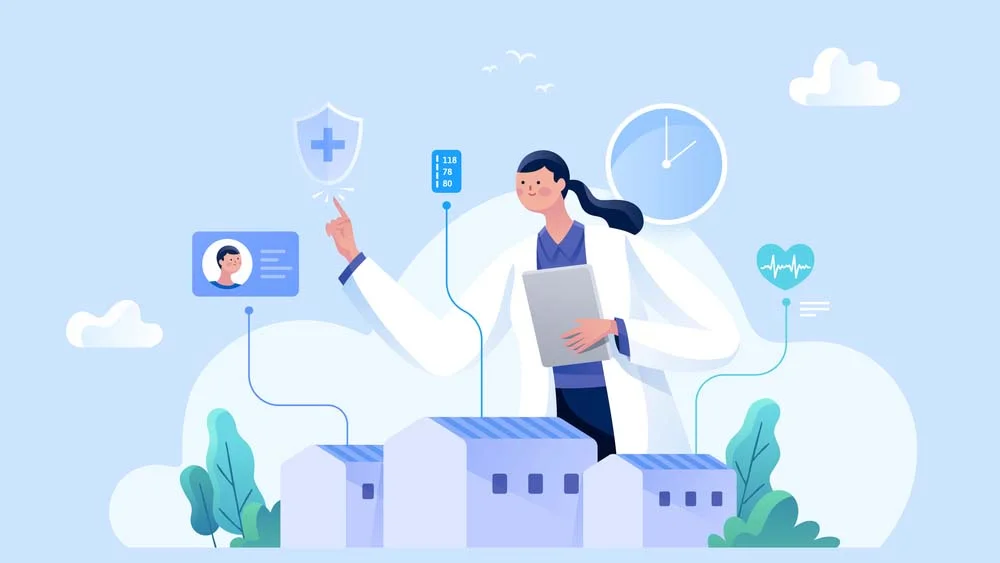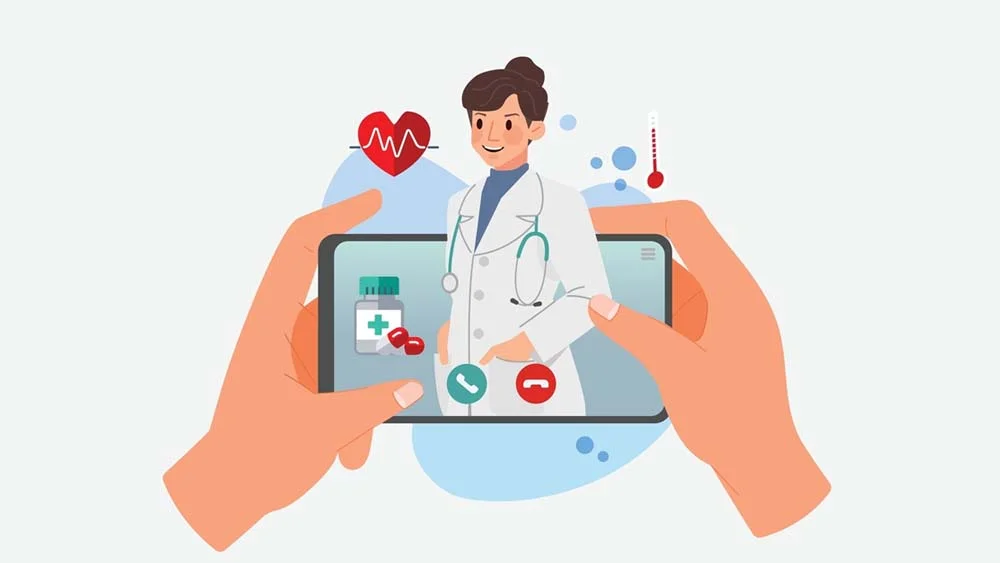In times past, the healthcare sector has seen a wave of advancements with the Internet of Things (IoT) leading the charge. The development of applications has become vital in healthcare, bringing about better patient care, enhanced operational efficiency and cost savings. This piece delves into the impact of IoT app development on healthcare emphasizing its advantages, uses and future possibilities.
Improving Patient Care Through IoT
IoT technology has transformed care by facilitating continuous monitoring, prompt data collection and tailored treatment plans. These innovations not only boost outcomes but also elevate the overall quality of healthcare services. Developing applications is essential in today’s healthcare sector, as they offer IoT services for healthcare, allowing for constant monitoring and customized treatment strategies.
Remote Patient Monitoring
A key contribution of IoT to healthcare is IoT health monitoring (RPM). Devices like sensors, smartwatches and connected medical gadgets gather health information from patients and send it to medical professionals in real time.
For instance, Individuals dealing with illnesses such as diabetes or heart conditions can utilize devices to monitor their vital signs constantly. The data collected by these devices is transmitted to healthcare providers who can monitor the patients’ health remotely and intervene promptly if needed. This approach helps reduce hospital visits and enhance results.
Tailored Treatment Plans
Through IoT app development, personalized treatment plans can be crafted based on real-time data analysis. By keeping an eye on a patient’s well-being, applications can offer valuable insights to customize treatment according to the individual’s requirements.
For instance, a patient recovering from surgery could utilize a connected device to monitor their progress in recuperation. The data gathered can guide tailored physical therapy routines, medication modifications and postoperative care, leading to a speedier recovery process.
Enhancing Operational Efficiency and Cost Savings
IoT applications do not only enhance patient care but also boost operational efficiency and cut down costs for healthcare providers. These enhancements play a role in handling the growing demands for healthcare services.
Management of Assets and Tracking
The utilization of IoT technology empowers healthcare facilities to efficiently monitor and manage equipment and supplies. Through sensor assets whereabouts, usage patterns and conditions can be monitored in time, reducing losses and optimizing resource allocation.
For example, hospitals could employ sensors to track the locations of wheelchairs, infusion pumps and other essential equipment. This ensures that these assets are readily available when needed minimizing downtime and elevating the quality of care.
Automation of Workflows
The development of IoT applications facilitates workflow automation by streamlining tasks and enhancing staff productivity. Automated processes alleviate the workload on healthcare professionals, allowing them to dedicate time towards care.
IoT technology has a range of uses in the healthcare field, including streamlining tasks like check-ins, scheduling appointments and sending medication reminders. These advancements are often the result of innovative healthcare mobile app development, which combines IoT capabilities with intuitive software to improve patient outcomes and operational efficiency. By automating these processes, it lightens the load and lowers the chances of human errors, ultimately boosting efficiency.
Exploring Applications in Healthcare Settings
The role of technology in healthcare is diverse and expansive, covering various environments such as hospitals, clinics, home care services and telemedicine.
- Clinics
In healthcare facilities like hospitals and clinics, IoT tools play a role in improving patient care quality optimizing procedures and ensuring overall safety. As these facilities increasingly rely on operational technology, prioritizing OT security is critical to safeguard both patients and connected medical infrastructure. Connected devices keep track of patients’ health status, monitor medical equipment usage patterns and regulate conditions for efficiency.
Smart beds equipped with sensors can monitor a patient’s movements, pressure points on the bed surface and vital signs. This data enables healthcare professionals to prevent bedsores, detect any falls promptly and manage pain levels effectively.
- Home Care Services
IoT applications also extend their benefits to home care settings by allowing patients to receive attention within their own residences. This setup proves advantageous for individuals or those managing chronic health issues.
For example: A smart pill dispenser can issue reminders for patients to take their medications as scheduled and notify caregivers if any doses are missed. This feature promotes medication adherence while reducing the risks associated with skipped doses.
- Telemedicine
Telemedicine services have seen a surge in popularity during times like the COVID-19. IoT devices are making consultations for healthcare providers by giving them real-time patient information, which helps in making accurate diagnoses and treatment plans.
For instance, a telemedicine platform that works with devices lets doctors keep track of a patient’s signs during a virtual appointment. This gives them a picture of the patient’s health, enhancing the quality of care.
Final Thoughts
In summary, the development of applications is revolutionizing healthcare by offering remarkable advantages in patient care, operational efficiency and cost savings. Whether it’s monitoring patients remotely creating treatment strategies, tracking assets or automating workflows, IoT technology is improving every aspect of healthcare delivery. As AI machine learning and connectivity progress further, the potential of IoT in healthcare will expand more, ushering in efficient and personalized healthcare systems. Embracing these advancements is crucial for healthcare providers who want to enhance outcomes and meet the changing needs of patients in this era.





